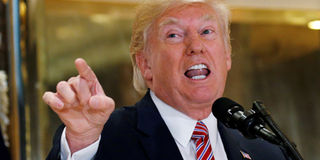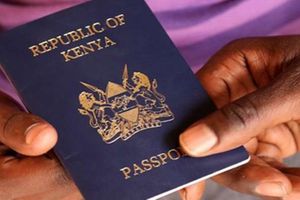Trump U-turn leaves peace in limbo

Seoul. Donald Trump’s abrupt cancellation of his summit with Kim Jong Un will strengthen the hand of the reclusive state’s leader, analysts say, re-invigorating Pyongyang’s relationship with China and driving the two Koreas closer together.
Only a day before the sudden U-turn, Trump and US officials had been indicating there was every chance the historic pow-wow between a sitting American president and the third generation Kim would go ahead in Singapore.
The meeting, scheduled for June 12, was to be the consummation of a relationship that had raced from threatening each other with nuclear destruction to chummy bonhomie and talk of a peace treaty -- all in a few short months.
Decades of diplomatic stalemate had given way to what appeared to be genuine progress in one of geopolitics’ stickiest issues, thanks, supporters said, to Trump’s unorthodox approach and willingness to engage an international pariah.
Pyongyang had released three American prisoners, agreed to a moratorium on missile tests, quietly accepted a US-South Korean military exercise on its doorstep and even blown up its only atomic weapons testing site. Then, barely hours after the dust had settled at the Punggye-ri nuclear facility, Trump announced the summit was dead in a personal letter to Kim.
“The timing of this letter is... highly questionable,” said Abraham M Denmark, director of the Asia Program at the Wilson Center.
“Coming just a few hours after NK demolished its nuclear test site, it guarantees that the US takes the blame for undermining diplomacy. NK comes out looking like the reasonable one.” Pyongyang furthered that impression in the hours after Trump’s letter, defying expectations in some quarters that it might launch a missile, or at least a volley of abuse.
Instead, it described the decision as “regrettable” and calmly declared its officials were willing “to sit face-to-face at any time”. Such an overt display of levelheadedness leaves US demands for continued pressure on North Korea looking hollow, said Denmark -- especially for one key regional player.
“China is likely to more openly back North Korea. Sanctions enforcement will soften, and I expect high-level contacts will continue,” he said.
And where Beijing had, until a few months ago, appeared almost ready to cast its troublesome younger brother to the wind, that looks a lot less likely now. (AFP)




